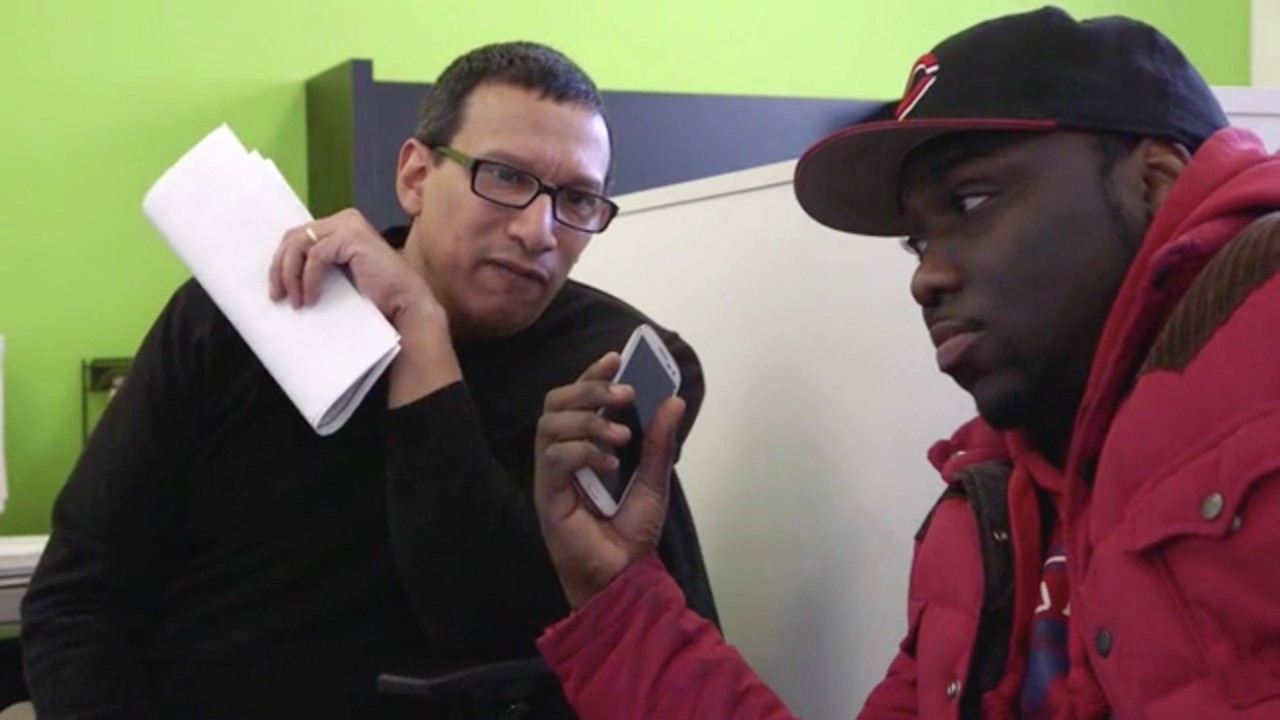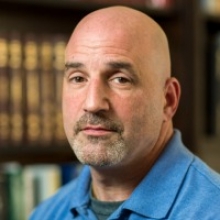
Keith Henry consults with a public defender at Bronx Public Defenders. (Cameron Hickey/Moyers & Company)
This post originally appeared at TalkPoverty.org.
Brendan Dassey, a 16-year-old with a developmental disability, was accused of rape and murder.
The police exploited his cognitive limitations to secure an unreliable confession. Prosecutors took advantage of his vulnerability to engineer his conviction. And the court refused to sufficiently correct these and other obvious injustices. Perhaps most troubling is the fact that Dassey’s own lawyer — who had been appointed by the court — assumed that his client was guilty and refused to investigate his claims of innocence.
All of this and more is explored in the much-discussed Netflix documentary series, Making a Murderer. It exemplifies exactly what the Supreme Court declared in the 1963 case, Gideon v. Wainwright: only with the aid of effective defense counsel is justice for all ensured.
Unfortunately, defendants across America have experiences like Dassey’s each and every day. Public defenders — who represent more than 80 percent of those accused of crimes — are dramatically under-resourced and overwhelmed. As a result, despite their devotion to their work, they are unable to live up to their critical role in a system that consistently tramples on society’s most marginalized members.
Now we have an opportunity to do something about it.
We are finally having a national conversation about our criminal justice crisis. But while many of the reforms offered are critical, calls for robust support for public defenders — which should be at the center of the discussion — are notably lacking.
Police, prosecutors and judges often face pressures to rush to judgment. A capable defense attorney ensures that these professionals play by the rules. Defense counsel also brings to light relevant characteristics of the accused — including any history of mental illness or substance abuse — as well as many of the circumstances of the case that must be understood in order to reach a just verdict. Finally, the defense lawyer is best situated to challenge assumptions that are often made about poor people — including assumptions about how they should be treated — that too often lead to indifference towards the raw deal that many defendants receive.
Reformers are currently working to address some of the more obvious flaws in our criminal justice system, such as over-criminalization, draconian sentencing laws and irresponsible pretrial detention practices. Collectively, these policies and practices facilitate the funneling of poor people into our nation’s prisons and jails.
However, even if we address these issues, the people dumped into the system will remain almost exclusively poor and disproportionately of color. Many officials who are responsible for administering justice will still fail to spend the time necessary to understand the accused and protect their rights. Public defenders will continue to have overwhelming caseloads, leaving them insufficient time to develop a zealous defense for their clients. Overall, there will continue to be an environment that spawns lawyers like Brendan Dassey’s — lawyers who come to understand their role as helping to facilitate the status quo rather than standing up to fight against it.
This is about more than providing increased funding to public defenders in order to reduce absurd caseloads. At Gideon’s Promise, which I co-founded with my wife, in addition to teaching defenders law and lawyering skills, we focus on the values and ethics essential to providing effective representation. Importantly, we give lawyers the tools and strategies to maintain these ideals in our pressure cooker of a justice system. Through training, mentorship and community support, these defenders remain strong advocates for individual clients and, collectively, are a movement of change agents.
Put simply, we have to bring to scale this kind of deep support for public defenders if we are to change the embarrassingly low standard of justice we currently accept for the poor.
Numerous politicians, including the president, are speaking passionately about the need for criminal justice reform, but not enough discuss what we need to do to live up to the hallowed right to effective counsel.
A recent program on the role of the courts in addressing our criminal justice crisis illustrates the inherent problem of leaving public defenders out of the reform conversation. The panel included two prosecutors and a former federal judge. No one talked about the critical role of lawyers for the poor in realizing equal justice. One panelist explained that he became a prosecutor because his experience in law school taught him that “[defense counsel has] the least amount of power in the courtroom and the prosecutor has the most.” The judge then shared her opinion that because of structural problems, “You can give public defenders gigantic resources and it will make no [material] difference.” These remarks, and the fact that there was no indigent defense advocate present to respond, reflect a view that public defenders are not critical to the criminal justice reform effort. Moreover, comments like these could encourage reformers to ignore the pressing need to support public defenders, and the real difference that such support can make.
If we are serious about criminal justice reform, we must ensure adequate resources for public defenders offices so that they can give every client’s case the time that they need and deserve. We must offer salaries commensurate with those afforded to prosecutors so that our nation’s most talented lawyers see public defense as a viable career option. But even resources and time will not transform a lawyer like Brendan Dassey’s into the advocate poor people need and deserve under the Constitution. We must also make sure that these lawyers have the training and support they need not only to perform well on the job, but to stay focused on the vital role they play and resist systemic pressures to abandon it.
Dassey’s co-defendant, Steven Avery, had the resources to hire a pair of excellent attorneys—the kind who would never ignore a client’s claims of innocence. The difference in the quality of representation that the two defendants received cannot be overstated. Had Dassey been able to afford similar counsel, he would likely be home today.
For every Steven Avery there are tens of thousands of Brendan Dasseys. And until we make the investments we need to protect the most vulnerable members of our society, the justice reform we seek will remain elusive.
The views expressed in this post are the author’s alone, and presented here to offer a variety of perspectives to our readers.




